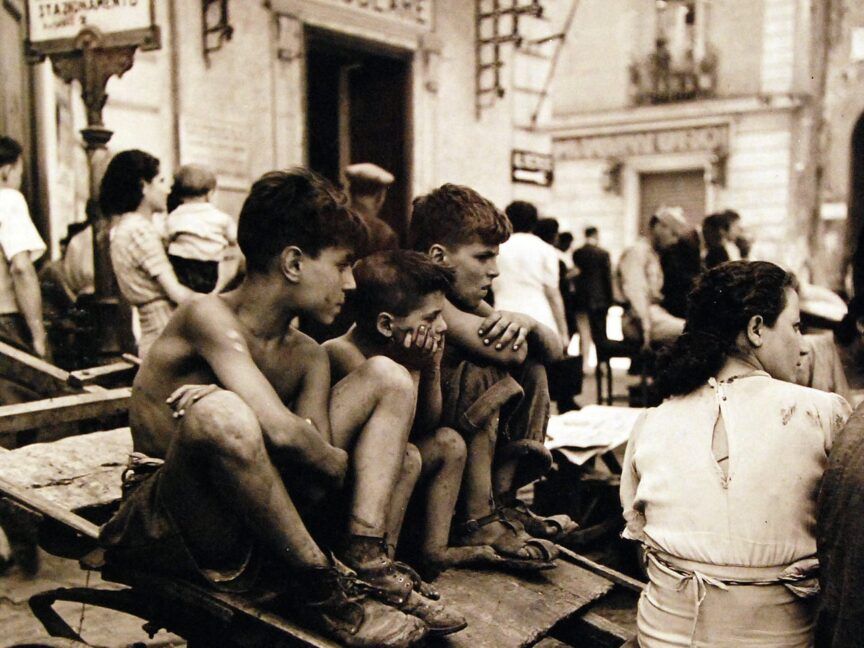Il “Cupo incanto” di Napoli.
Al suo primo apparire, nel lontano 1953, “Il mare non bagna Napoli” sembrò ai molti, l’ennesimo lavoro letterario che si innestava in quel filone che fu poi chiamato “neorealismo”. Si trattava però di tutt’altra cosa. Nato dall’incontro di Anna Maria Ortese, con Napoli, una città disintegrata fisicamente e moralmente dalla guerra, il libro è la cronaca cruda e dolente di un vero e proprio spaesamento. La città è ferita ed è tragico e grottesco palcoscenico sul quale l’autrice proietta ciò che lei stessa definisce la propria “nevrosi”: una nevrosi caratterizzata dall’ impossibilità di accettare il reale ed i suoi orrori, in una Napoli corrosa e divorata. Con la sua scrittura tanto rigorosa quanto “allucinata”, Anna Maria Ortese grida contro questo orrore, da cui lo sguardo, come quello della bambina Eugenia nel giorno in cui mette gli occhiali, nel primo fiabesco racconto, vorrebbe potersi distogliere: e purtroppo non può. “Il mare non bagna Napoli” è un libro da leggere e rileggere per capire ed assimilare “il cupo incanto” trasferito dalla attenta scrittura “documentaristica” di Anna Maria Ortese.
The “dark enchant” of Naples.
At its first appearance, back in 1953, “The sea does not wet Naples” seemed to many, the umpteenth literary work that was grafted into that vein that was then called “neorealism”. But it was a completely different thing. Born from the meeting of Anna Maria Ortese, with Naples, a city physically and morally disintegrated by the war, the book is the cruel and painful chronicle of a real disorientation. The city is wounded and is tragic and grotesque stage on which the author projects what she defines her own “neurosis”: a neurosis characterized by the impossibility of accepting the real and its horrors, in a corroded and devoured Naples. With her writing as rigorous as “hallucinated”, Anna Maria Ortese cries out against this horror, from which the look, like that of the little girl Eugenia in the day when she puts her glasses, in the first fairy tale, she would like to be distracted: and unfortunately she can not . “The sea does not wet Naples” is a book to read and reread to understand and assimilate “the dark enchantment” transferred from the careful “documentary” writing by Anna Maria Ortese.

